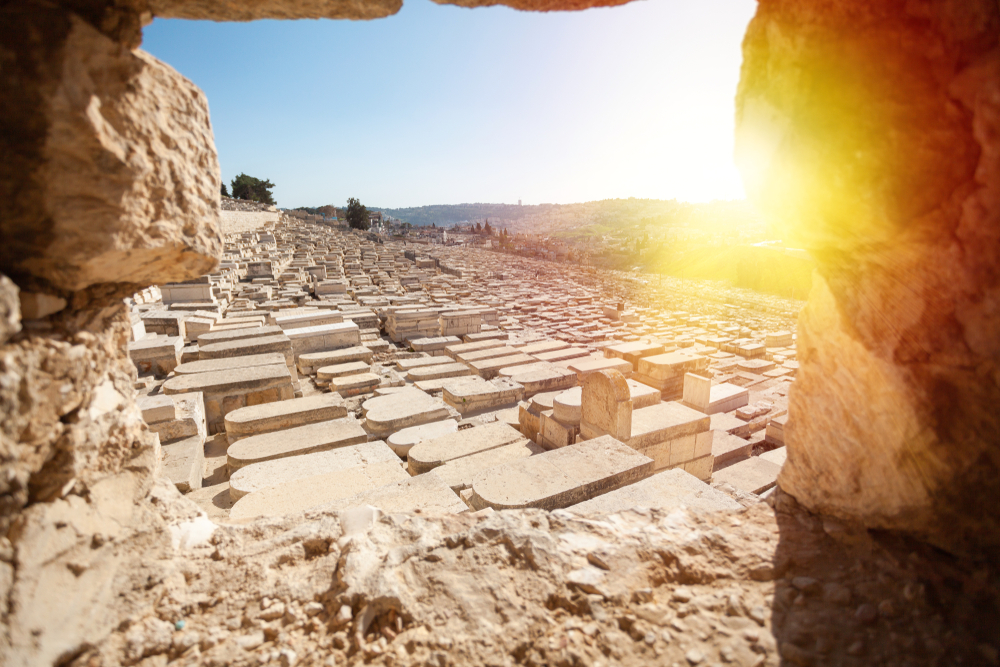Life After Death
What Happens After We Die? A Jewish and Scientific Exploration of Death, the Soul, and the Afterlife
Understanding life after death, near-death experiences, resurrection, and the dignity of the human body through both Torah wisdom and modern research
 (Photo: shutterstock)
(Photo: shutterstock)The fact that death is unavoidable, and that no one can escape it, has always raised profound questions, such as what happens to a person after death, why do we die, and others.
From a scientific perspective, death is defined as the end of the body’s biological activity. When the heart stops beating and the brain ceases to function, the body can no longer operate.
Another definition of death is the absence of breathing — this is the definition accepted in Jewish law (halacha). The modern term “brain death” describes a state in which all measurable brain activity stops. It is considered medically irreversible. Doctors assess it using EEG (brain-wave recordings) or by examining the level of damage to the brain stem, the part responsible for basic actions such as breathing.
However, according to halacha, brain death does not define a person as dead. For this reason, most leading halachic authorities have firmly opposed the removal of vital organs (such as the heart or lungs) from a person considered “brain dead,” stating that doing so constitutes murder.
Despite this, researchers continue to study near-death experiences (NDEs) and reports of out-of-body experiences (OBEs).
What Happens After Death? Does the Soul Continue?
According to Judaism, the true “self” of a human being is not the body but the soul. The body is only an outer garment, as described in Iyov (10:11): “You clothed me with skin and flesh, and wove me together with bones and sinews.”
Just as a shirt moves when a person moves his arm, yet the shirt has no life of its own, so too the body only appears alive because of the soul within it. After death, when the body returns to the earth and the soul rises upward, the soul continues its journey while the body becomes lifeless matter. The person — the soul, continues to see, feel, understand, and perceive even without the physical body.
Resurrection of the Dead: How Is It Possible?
Belief in the resurrection of the dead (Techiyat HaMeitim) is one of Maimonides’ Thirteen Principles of Faith. It expresses the Jewish belief in the eternal life of the soul and divine reward and justice.
Some ask: How can a decomposed body return to life? What of a body burned to ashes or consumed by animals?
Judaism compares it to a seed: A rotting seed placed in the ground becomes a living plant. If a decayed seed can return as a living stem, why should a decayed human body not be rebuilt and revived?
Rabbi Zamir Cohen explains that if one understands that the real person is the spiritual inner being — while the body is only a “suit” tailor-made in its shape, then resurrection becomes understandable:
Even if the garment (the body) decays, the person (the soul) remains, and can be clothed again in a renewed physical form.
If God created the entire universe ex nihilo — from absolute nothingness, then resurrecting a person whose body already existed is certainly within His power.
Resurrection in Classical Jewish Texts
The Zohar (Bereishit 118b) teaches that God will beautify the bodies of the righteous at the resurrection, like the beauty of Adam in Gan Eden, and that their bodies will shine like the brightness of the heavens (Daniel 12).
In Otiot d’Rabbi Akiva, the process of resurrection is described step-by-step:
God blows a great shofar, its sound traveling from one end of the world to the other.
At the first blast, the earth shakes.
Second — dust separates.
Third — bones gather.
Fourth — limbs warm.
Fifth — skin forms.
Sixth — souls return to bodies.
Seventh — they rise alive, clothed in garments whose fragrance fills the world.
Rabbi Shimon Agassi (in Yesodei HaTorah) writes that God will not create new bodies at resurrection, but rather, He will revive the same body that turned into dust — giving it renewed life.
 (Photo: shutterstock)
(Photo: shutterstock)Why Do Humans Die?
Death entered the world as a consequence of Adam’s sin. One of the punishments was: “To dust you shall return.” Thus mortality became part of human existence.
Some rare individuals, such as Eliyahu HaNavi, is described as having entered Paradise alive.
The Talmud (Bava Batra 17a) states that some individuals, including Yishai, the father of King David, died only because of the “bite of the serpent,” meaning the original sin itself, but not personal wrongdoing.
Jewish mourning expressions, including: “Hashem gave, Hashem took, blessed be the name of Hashem” originate from the Book of Iyov. Halacha requires mourners to recite: “Baruch Dayan HaEmet” (Blessed is the True Judge).
Kohelet (3:20–21) hints at life after death: “One’s soul rises upward, while the spirit of the animal descends to the earth.”
 (Photo: shutterstock)
(Photo: shutterstock)Preparing for Death
Because death can come suddenly or slowly, Judaism encourages spiritual preparation:
A person should accumulate spiritual merits of Torah, mitzvot, and kindness.
Writing a halachically valid will ensures peace and fairness for the family.
A halachic will is essentially a gift taking effect immediately before death. It must comply with both Jewish and civil law, and should be prepared with a knowledgeable attorney to avoid later disputes.
 (Photo: shutterstock)
(Photo: shutterstock)Dignity of the Dead in Judaism
Judaism emphasizes extraordinary respect for the deceased:
Even executed criminals must not be left hanging, but must be buried promptly.
Leaving a body unattended is forbidden.
The High Priest must bury a “met mitzvah” — an unattended corpse—even if it means missing the Temple service.
For this reason, Judaism strictly prohibits:
Autopsies (except in rare cases permitted by halacha)
Cremation
Embalming
Displaying the body
Delaying burial without need
Organ donation from a brain-dead donor (in most halachic opinions)
The body must be washed (tahara), shrouded simply, and buried quickly with dignity.
Jewish Burial
Burial is a Torah commandment. A Jew who finds a corpse with no one to bury it must ensure burial — even at great cost or personal inconvenience.
The mitzvah of not delaying burial emphasizes the sacredness of the human body, created in the image of God.

